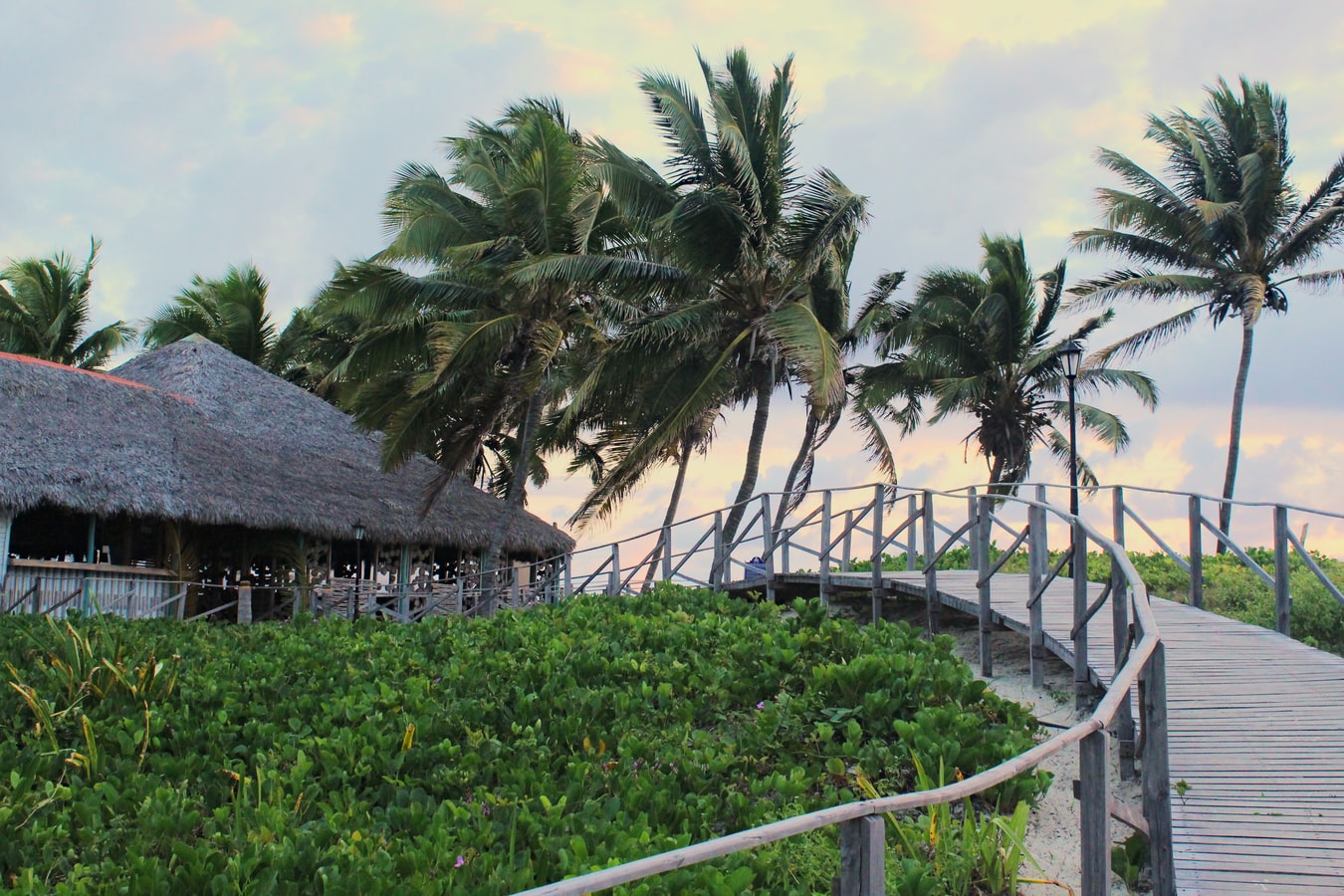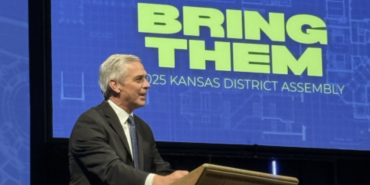Starting Over in Cuba

The time, January 2001. The place, Havana. The event, the Cuba District's 32nd annual district assembly. As delegates gather to elect a new district superintendent, 33-year-old Leonel Lopez, the rector of the Nazarene Seminary, washes the seminary car because he is to pick up Ruben Fernandez, the regional educational director, at the airport.
Leonel never finishes the task. The district secretary interrupts him, "Congratulations, you've just been elected district superintendent. General Superintendent William Prince wants you to come into the assembly so he can meet you."
"This is a joke, isn't it?" Leonel asks. "How could the assembly elect me when there are many older and more experienced elders? And besides, how can I go into the assembly in my work clothes?"
"No, you must come," his friend replies. "You really have been elected the fourth superintendent of the Cuba District."
In the 13 years since his unexpected election, the Cuba District has grown from 35 churches and 3,421 members to 88 churches and 8,797 members. In addition, the district has 23 church-type missions and 570 preaching points and missions across the island.
Long before his election as district superintendent, God was shaping Leonel to be a servant leader. As was typical in Cuba, Leonel lived in a dormitory during his high school years. Every four weeks he was allowed to return home for four days. The rest of the time he studied in the morning and worked in the afternoon, often cultivating or picking coffee on a nearby farm. His father had little to do with him. His mother died when he was 20. He became the primary provider for his sister and grandmother. Twelve years later, when his sister died of skin cancer, he promised to provide for her two little girls.
In the 1950s, four independent missionaries started a small church near Baracoa, Cuba. Because one of them had a Nazarene background, they turned the church over to the Church of the Nazarene when they left the country following the Cuban revolution of 1959.
For the next 27 years services were prohibited in little church. The small congregation held services in homes or in other church buildings, with members sometimes walking 10 miles to a meeting place. Amazingly, they were able to keep some of the church property because a couple of elderly members took up residency there.
In 1980, a Nazarene pastor named Amelio Palmero decided it was time to open the church again. For the next seven years he frequently traveled the 600 miles from Baracoa to Havana until government permission was finally granted to hold one service a week.
During this time Palmero shared the story of Jesus Christ with Leonel. Leonel grew quickly in his faith and soon Palmero placed him in charge of the young people of the church.
People observed Leonel's gifts and calling to ministry. They encouraged him to apply to the Nazarene Seminary in Havana.
Undeterred when he was denied entrance because he lacked sufficient funds, he became even more involved in ministry. Soon he was Palmero's assistant pastor.
Not long afterward, his grandmother offered to give him her government pension so he could go to seminary. Now he had the funds to attend, but once again was denied entrance because district leadership felt it was improper to leave his grandmother without her pension, her sole means of support.
Leonel accepted it as God's will and continued to minister and grow under Palmero's tutelage. Soon he was appointed pastor of the nearby Boma Church, one of the 17 that Palmero has started in the Baracoa area.
Migdalis, Palmero's youngest daughter, was vivacious, and totally committed to God. She and Leonel fell in love and were married in October 1991. They applied to the seminary, but were denied entrance because there was no married student housing. Leonel decided it just wasn't God's will for him to go to seminary. Instead he began his theological education through extension courses offered in his area.
About this time Palmero felt God urging him to plant churches in the remote mountainous area of Maisi. However, it was difficult to find someone willing to go because housing was unavailable and public transportation there did not exist. When Palmero shared his vision with Leonel and Migdalis, they volunteered to go.
For the next year, each Friday they rode their one-speed bicycles to their new pastorate, rain or shine. It took seven hours to make the 40-mile trip up the mountain. The only tools they carried with them were a small air pump, a pair of needle-nose pliers, and some strong string. Whenever they had a flat tire, one of them would stretch out the part of the inner tube where the hole was while the other tied off the leak with the string. Then they pumped up the tire and continued on their journey. After spending the weekend in a room loaned to them by one of the new converts, they returned home each Monday"the downhill trip took four hours.
Today there are five congregations in remote Maisi. The woman who hosted them each weekend is now a pastor in Guantanamo.
In 1992, James Hudson, the director of the Caribbean (now Mesoamerica) Region, met Leonel and asked, "Why isn?t this young man at the seminary?" Soon, Leonel and Migdalis were finally invited to attend. However, there was a problem; there still wasn't any couples' housing available. For the next three years, Leonel lived in the men's dorm while Migdalis lived in the women's dorm. Because of their strong commitment to God and to each other, they made it successfully through to graduation. The first thing Leonel did when he became seminary rector was to arrange for married students' housing and to change the policy so that couples would not be separated.
With this same spirit of commitment and faith, at the district assembly held in January 2014, Leonel and the Cuban leadership took a big step forward. By a unanimous vote and with great celebration, the assembly voted to divide the 770-mile-long island into two districts. Jose ¨Pepe¨ Rojas was elected superintendent of the newly-formed Eastern District while Leonel remains superintendent of the Western District.
For more than 40 years, the Cuban church has received a subsidy from the World Evangelism Fund, but at the recent assembly the Western District asked General Superintendent Gustavo Crocker to declare it a self-supporting Phase 3 district. It is a big step forward because the majority of the Cuban Nazarene churches are located in the Eastern District.
Leonel is optimistic. He shares, "In 2001 when I became superintendent, we had 35 churches in Cuba. Today we have more than 100. With the division of the district there are once again 35 churches on my district. With God's help, we will grow from 35 churches to 100 again. Then, perhaps, there can be a third district."
As district superintendent Leonel continues to put others before himself, empathizing when they hurt and quickly helping whenever he can. Leonel believes that this is God's time for the Cuban Church of the Nazarene. "In Cuba there is intense spiritual hunger and doors are open like never before" he shares. "This is God's time, and He is greater than any obstacles we may face."
Paul Jetter is a retired Nazarene missionary and pastor who now makes frequent mission trips to Cuba.
Please note: All facts, figures, and titles were accurate to the best of our knowledge at the time of original publication but may have since changed.




